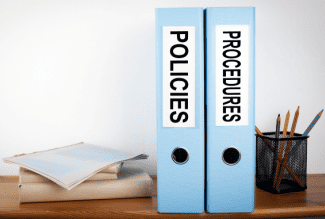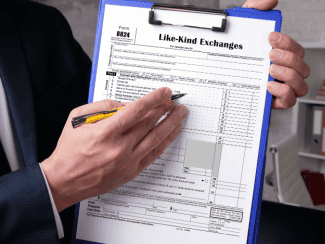House Rules For Renters The Top 10 Essential Rules
The importance of house rules for renters cannot be overstated. These rules play a vital role in ensuring a peaceful living environment and establishing clear expectations between the landlord and tenants. They provide guidelines for behavior and help maintain a harmonious relationship throughout the rental period.

Implementing house rules helps create a peaceful and respectful atmosphere for all tenants. It sets the foundation for a harmonious coexistence and fosters a sense of community within the rental property.
2. Establishing Clear Expectations:
House rules outline what is expected from the tenants regarding behavior, responsibilities, and obligations. They establish boundaries, preventing any misunderstandings or disputes between the landlord and tenants.
The Top 10 Essential House Rules for Renters:
1. No Smoking Inside the House:
Smoking indoors can lead to health hazards and property damage. Prohibiting smoking indoors ensures a healthy environment for all tenants and protects the property from smoke-related damages.
2. Pet Policy and Regulations:
If pets are allowed, it is important to specify the pet policy, including restrictions on certain breeds, size limitations, vaccination requirements, and rules regarding pet waste disposal. Clear guidelines ensure responsible pet ownership and prevent any disturbances caused by pets.
3. Noise Regulations and Quiet Hours:
Setting specific quiet hours helps maintain a peaceful environment for everyone. Tenants should be aware of noise restrictions, especially during nighttime, to ensure everyone’s comfort and uninterrupted sleep.
4. Maintenance and Repairs:
Clarify the responsibilities of both the landlord and tenants regarding property maintenance and repairs. Tenants should understand their obligations to report any damages promptly, while the landlord should provide maintenance and repair services in a timely manner.
5. Safety and Security Measures:
Lay out safety protocols, such as installing smoke detectors, maintaining fire extinguishers, and keeping emergency exit routes clear. These rules ensure the safety and well-being of all tenants.
6. Proper Waste Disposal and Recycling:
Specify rules for waste disposal and recycling to maintain cleanliness and comply with environmental regulations. Tenants should be aware of proper waste segregation and disposal methods.
Need a Lease Agreement?
Access 150+ state-specific legal landlord forms, including a lease.
7. Parking and Vehicle Regulations:
Establish guidelines for parking, including assigned parking spaces, visitor parking, and regulations for vehicle maintenance. Clear rules prevent parking disputes and ensure smooth parking operations within the rental property.
8. Guest Policy and Visitor Restrictions:
Define the guest policy, including the maximum number of guests allowed, duration of their stay, and any restrictions regarding overnight visitors. This ensures that the property is not overcrowded and that the peace and privacy of other tenants are respected.
9. Alterations and Modifications:
Outline the rules for making alterations or modifications to the rental unit. Tenants should seek permission from the landlord before making any changes to the property’s structure or appearance.
10. Rental Payment and Lease Terms:
Specify the terms of rent payment, including due dates, accepted payment methods, and consequences for late payment. Clear guidelines regarding rental payment prevent any misunderstandings and ensure compliance with the lease agreement.
Communicating and Enforcing the House Rules:
1. Including House Rules in the Rental Agreement:
The house rules should be clearly stated in the rental agreement to ensure that all tenants are aware of them from the beginning. It is crucial to have all tenants read and sign the agreement to demonstrate their understanding and agreement to abide by the rules.
2. Providing Written Reminders:
Regularly provide written reminders of the house rules to ensure that they stay fresh in the tenants’ minds. This can be done through notices, newsletters, or emails.
3. Addressing Violations and Consequences:
In the event of rule violations, it is important to have a system in place to address and resolve the issue. Implementing fair consequences for violations helps enforce the house rules and maintain a harmonious living environment.
By implementing and effectively communicating these house rules, both landlords and tenants can enjoy a peaceful and mutually respectful rental experience.
The Importance of House Rules for Renters
When it comes to renting a house, having clear and well-defined house rules becomes crucial. In this section, we’ll dive into the importance of establishing house rules for renters. From ensuring a peaceful living environment to setting clear expectations, we’ll explore how these rules play a vital role in harmonious cohabitation. So, tighten your seat belts as we uncover the key aspects of creating an ideal living space for both tenants and landlords.
Ensuring a Peaceful Living Environment
Creating and maintaining a peaceful living environment is essential for renters and landlords. By following key practices, you can ensure a harmonious atmosphere in your rental property.
-
Establish noise regulations: Implement specific rules on noise levels and quiet hours to prevent disturbances and promote a peaceful atmosphere for all residents.
-
Address noise complaints promptly: Deal with noise complaints immediately and enforce consequences when necessary to prevent ongoing disruptions and maintain tranquility.
-
Prohibit illegal substances: Clearly state in the house rules that the use or possession of illegal substances within the property is strictly prohibited. This ensures the safety and well-being of all occupants.
-
Encourage cleanliness: Emphasize the importance of cleanliness and tidiness within the property. This creates a pleasant and peaceful living environment for all residents.
-
Respond to maintenance requests promptly: Promptly address maintenance issues reported by tenants to maintain a peaceful living environment and ensure the property remains in good condition.
Remember, incorporating these rules in the rental agreement and providing written reminders can help ensure that all tenants are aware of their responsibilities. By actively enforcing these rules, you can create a peaceful living environment that enhances the renting experience for everyone involved.
Establishing Clear Expectations
Establishing clear expectations is crucial when setting house rules for renters. This ensures that both the landlord and tenants are on the same page when it comes to their responsibilities.
First and foremost, it is important to outline specific rules and regulations that tenants must adhere to. These should cover areas such as noise, waste disposal, parking, and guests. By establishing these expectations from the start, a harmonious living environment can be fostered for all residents.
In addition, clear expectations promote better communication and understanding between the landlord and tenants. It is advisable to provide written reminders of the rules, include them in the rental agreement, and address any violations promptly. Open and effective communication is vital in resolving issues and ensuring that everyone is aware of what is expected of them.
Lastly, clear expectations allow the landlord to address the consequences for not following the rules. These consequences may include late payment charges, property damage, or even legal action. By establishing these consequences, tenants are encouraged to take their responsibilities seriously and show respect for the rules.
The Top 10 Essential House Rules for Renters
When it comes to renting a house, it’s important to establish some ground rules to ensure harmony and a pleasant living environment. In this section, we will delve into the top 10 essential house rules for renters. From no smoking indoors to understanding the pet policy and regulations, we’ll cover everything you need to know. We’ll also explore noise regulations, proper waste disposal, and parking regulations, among other important aspects. So, let’s dive in and discover the key guidelines that will help create a comfortable and respectful rental experience for everyone involved.
No Smoking Inside the House
Smoking inside the house is prohibited. It poses health risks, causes property damage, and disrupts the comfort of other residents. Maintaining a smoke-free environment ensures the well-being and safety of everyone. Violators will face immediate consequences, including fines and potential eviction.
To emphasize the rule’s importance, informing all tenants about the harmful effects of smoking and the reasons for the no-smoking policy is necessary. Clear guidelines and reminders help ensure compliance. State laws and tenancy regulations may also restrict indoor smoking.
To accommodate smokers, designate outdoor smoking areas that won’t affect others. Creating a smoke-free environment improves air quality, reduces fire risk, and maintains a clean living space.
Strictly enforcing the no-smoking policy protects the property, upholds the rights of non-smoking tenants, and ensures legal compliance. Respecting and following this rule fosters a harmonious and healthy living environment for all tenants.
Pet Policy and Regulations
To ensure a harmonious living environment, tenants must adhere to the Pet Policy and Regulations set by the landlord. Pets are allowed in the rented property, but there are specific guidelines that need to be followed.
- Pets must be registered with the landlord and provide evidence of vaccinations and licenses as per the Pet Policy and Regulations.
- Pet owners are responsible for any damage caused by their pets and will be held liable for the cost of repairs, as stated in the Pet Policy and Regulations.
- Pets must be well-behaved and not disrupt other tenants or neighbors, in accordance with the Pet Policy and Regulations.
- Pets must be kept on a leash when outside the rented property, as required by the Pet Policy and Regulations.
- Pet owners must clean up after their pets and dispose of waste properly, as outlined in the Pet Policy and Regulations.
- No aggressive or dangerous animal breeds are allowed, in compliance with the Pet Policy and Regulations.
- Pets are not permitted to enter common areas such as the lobby, gym, or swimming pool, in accordance with the Pet Policy and Regulations.
- If a pet causes damage or excessive noise, the landlord has the right to request its removal, as stated in the Pet Policy and Regulations.
- Failure to comply with the pet policy and regulations may result in additional charges or termination of the lease, as stated in the Pet Policy and Regulations.
By adhering to the Pet Policy and Regulations, pet owners can ensure a safe and enjoyable living space for everyone. It is important to be responsible and respectful pet owners, following these rules and regulations set by the landlord.
Noise Regulations and Quiet Hours
Noise regulations and quiet hours play a crucial role in creating a harmonious living environment for tenants. It is essential to establish clear guidelines concerning acceptable noise levels and designated quiet hours in rental properties. During these quiet hours, which usually fall in the evenings and early mornings, residents must refrain from engaging in activities that could disrupt the tranquility of their surroundings. By effectively managing noise, residents can ensure that their neighbors are undisturbed and enjoy a peaceful living environment.
To ensure compliance, rental agreements can include specific provisions for noise regulations and quiet hours, creating legal obligations for both landlords and tenants. These regulations may encompass limitations on loud music, parties, or any excessive noise that may disturb others. Failing to adhere to these regulations can result in warnings, fines, or even eviction, depending on the severity of the violation.
It is crucial for renters to be aware of and respect these noise regulations and quiet hours to maintain positive relationships with their neighbors and foster a pleasant living experience for everyone in the community. By considering the well-being of others and adhering to these rules, renters contribute to a peaceful and respectful living environment.
Maintenance and Repairs
When it comes to maintenance and repairs in a rental property, both the landlord and the renter must understand their responsibilities. Here are some key points to consider:
1. Regular maintenance: The landlord must properly maintain the rental property and address necessary repairs, such as fixing leaks, replacing broken appliances, or repairing damages.
2. Reporting issues: Renters should promptly report any maintenance or repair issues to the landlord to allow for timely action.
3. Emergency repairs: In case of emergency repairs that pose safety risks or could cause further damage, renters should immediately contact the landlord, who should respond promptly and arrange for appropriate repairs.
4. Responsibility for damages: Renters are responsible for covering the cost of repairs caused by their negligence or misuse.
5. Repairs and deductions: Renters may be able to deduct the cost of necessary repairs from their rent if agreed upon in the rental agreement.
Pro-tip: Maintain open communication with your landlord, regularly inspect the property for maintenance issues, and promptly report them to ensure a safe and well-maintained living environment.
Safety and Security Measures
Rental property safety and security measures are crucial to ensure the well-being of tenants and the property. Here are essential safety and security measures to consider:
- Install secure locks on all entrances and windows to prevent unauthorized access.
- Provide adequate lighting in common areas and outdoor spaces to deter potential intruders.
- Install smoke detectors and carbon monoxide alarms in appropriate areas to protect against fire hazards.
- Establish protocols for emergencies, including clear evacuation plans and contact information for emergency services.
- Regularly inspect and maintain safety equipment, such as fire extinguishers and emergency exits, to ensure proper functionality.
In one rental property, the landlord implemented strict safety and security measures that included CCTV cameras in common areas and a secure entry system. This proved crucial when a break-in was captured on camera, allowing the authorities to identify the perpetrator and take appropriate action. The tenants felt safe and protected knowing such safety and security measures were in place.
Proper Waste Disposal and Recycling
Proper waste disposal and recycling are crucial for renters. They play a vital role in maintaining environmental sustainability and complying with local regulations. When it comes to proper waste management, renters should keep the following points in mind:
1. Separate and Sort: Renters should diligently separate recyclable materials such as paper, plastic, glass, and metal from general waste. These items should be placed in designated recycling bins.
2. Educate Yourself: It is essential to familiarize yourself with the specific recycling guidelines in your area. Be aware of which items can and cannot be recycled to prevent any contamination.
3. Avoid Contamination: Contaminated recyclables, such as greasy pizza boxes or dirty plastic containers, render the entire batch non-recyclable. Make sure to rinse containers and remove any food residue before recycling them.
4. Reduce and Reuse: Minimizing the use of single-use items and opting for reusable alternatives helps in reducing waste. Whenever possible, reuse items like glass jars, shopping bags, and containers.
5. Utilize Proper Disposal Facilities: Take advantage of nearby recycling centers, drop-off points, or collection programs for special items such as electronics, batteries, or hazardous materials. It is important to never throw these items in regular trash bins.
6. Follow Local Regulations: Stay updated with local waste disposal schedules, collection methods, and guidelines. Adhering to these rules ensures efficient waste management in your community.
Parking and Vehicle Regulations
Parking and vehicle regulations are crucial for maintaining order and ensuring the smooth functioning of a rental property. Designated parking spaces should solely be used for vehicles and should not be obstructed or utilized for any other purposes.
Tenants must register their vehicles with the landlord or property management for easy identification. Guest parking should be limited and regulated to prevent overcrowding or shortages. Unauthorized vehicles cannot be parked on the property without prior approval from the landlord.
Proper maintenance of vehicles, including regular inspection, registration, and insurance, is required. Any damage caused by tenant vehicles must be promptly reported, and appropriate steps should be taken to rectify the situation. Vehicle repairs or maintenance are not allowed on the property unless explicitly permitted by the landlord.
It is mandatory for all residents to obey all traffic laws and regulations, including speed limits, to ensure the safety of everyone. Any violations of the parking and vehicle regulations may result in consequences such as fines or towing.
Renters must be aware of their responsibilities and must adhere to the rules established by the landlord or property management. By following these regulations, a harmonious living environment can be maintained, and the safety and convenience of all residents can be guaranteed.
Guest Policy and Visitor Restrictions
Guest Policy and Visitor Restrictions are important for renters. Establish clear guidelines for a peaceful living environment and to protect privacy and safety.
1. Guest Policy: Specify the number of guests allowed, any time restrictions or overnight stay limitations. Prevent overcrowding and disturbance to other tenants.
2. Visitor Restrictions: Clearly outline restrictions on visitors, such as requiring a resident to accompany guests or notifying the landlord in advance. Maintain security and prevent unauthorized access.
3. Guest Registration: Consider implementing a guest registration process to track visitors for security and identifying potential issues.
4. Common Area Usage: Clarify rules for guests using shared facilities like the lobby, gym, or pool. Ensure guests are aware of the rules.
5. Violation Consequences: Clearly state consequences for policy and restriction violations, including fines, warnings, or termination of the lease in extreme cases.
Effective policies and restrictions foster a harmonious living environment, protect tenant rights and privacy, and maintain the rental property’s integrity.
In 2019, a rental property in a quiet suburban neighborhood had unauthorized parties and disruptive behavior due to excessive guests. To address the issue, strict policies and restrictions were implemented. Tenants had to register guests in advance, and the number of guests allowed was limited. A curfew was also introduced for peace at night. These regulations successfully restored tranquility and enhanced the living experience for residents.
Alterations and Modifications
Altering and modifying rental properties requires following guidelines:
1. Obtain written consent from the landlord before making any alterations and modifications.
2. Ensure that alterations and modifications comply with state laws and regulations.
3. Understand that the tenant is responsible for repairing damages caused by alterations and modifications.
4. Note that violating the rental agreement may lead to legal action by the landlord.
5. Common alterations and modifications include painting, installing shelves, and hanging pictures. Always check with the landlord first.
Did you know that some landlords may charge a broker’s fee for certain alterations and modifications, in addition to repair and restoration costs?
Rental Payment and Lease Terms
Rental payment and lease terms are crucial aspects to comprehend in a rental agreement. It is essential to keep in mind the following key factors:
1. Payment Schedule: Familiarize yourself with the due dates and frequency of rental payment. Ensuring timely payments will help you avoid any late charges.
2. Grace Period: Determine whether the lease agreement includes a grace period. This provision allows for a few extra days to make the payment after the due date without incurring penalties.
3. Payment Method: Find out which methods of payment are acceptable, such as online transfers, checks, or cash. It is important to adhere to the designated payment method.
4. Rental Increase: Stay informed about potential rental increases throughout the lease term. They should be clearly stated and comply with relevant tenancy laws.
5. Lease Renewal: Understand the process and timeframe for requesting a lease renewal. Plan ahead and communicate with your landlord regarding your intention to continue renting.
6. Breaking the Lease: Familiarize yourself with the consequences and obligations if you need to terminate the lease before it expires. Consult state laws and refer to the rental agreement for proper procedures and any potential financial liabilities.
7. Late Payment Charges: Be aware of the consequences associated with late rental payments. The rental agreement may specify a specific late payment charge or a percentage of the monthly rent.
8. Security Deposit: Understand the terms and conditions for the return of your security deposit. This includes any deductions for damages beyond normal wear and tear.
Thoroughly reviewing and comprehending the rental payment and lease terms will contribute to a seamless tenancy experience.
Fun Fact: According to a survey, approximately 65% of renters in the United States opt for electronic rental payments.
Communicating and Enforcing the House Rules
When it comes to renting, clear communication and enforcement of house rules are key. In this section, we’ll explore two important aspects: including house rules in the rental agreement and providing written reminders. Discover how these practices not only promote a harmonious living environment but also establish a framework for a respectful and enjoyable tenant-landlord relationship. Get ready to navigate the world of house rules and ensure a smooth and compliant rental experience.
Including House Rules in the Rental Agreement
- Include all relevant house rules in the rental agreement to establish clear expectations between the landlord and tenant.
- Specify rules regarding late rent payment, including consequences such as a late payment charge or eviction.
- Outline the process for renewing the lease, including any conditions or requirements.
- Include rules regarding tenant conduct to ensure a peaceful living environment, such as managing noise levels and prohibiting illegal substances.
- Specify responsibilities for cleanliness and maintenance of the rental property, including reporting necessary repairs or maintenance requests.
- Outline rules for using external spaces like parking areas or communal areas, and specify any restrictions or regulations.
- Address rules related to altering the property or making modifications, such as obtaining prior written consent from the landlord.
- Incorporate rules regarding giving notice to move out, including the required notice period and leaving the property in good condition.
- Include rules regarding the landlord’s access to the property for inspections or repairs, ensuring compliance with tenancy laws.
- Specify any other specific rules or requirements relevant to the rental property, such as restrictions on hanging pictures or the need for renters insurance.
When I rented an apartment, the rental agreement included detailed house rules to ensure both the landlord and I understood our rights and responsibilities. The agreement outlined rules for rent payment, maintaining cleanliness, and using shared amenities. It also included information about the consequences of breaking the lease and the process for renewing it. Having the house rules stated in the rental agreement made communication and conflict resolution easier. It provided a sense of security and clarity for a smoother rental experience.
Providing Written Reminders
– To ensure compliance with house rules, it is important to provide written reminders for renters.
– These reminders can be distributed to all renters through various channels such as email, the community bulletin board, or physical delivery.
– It is essential to make these reminders easily visible and accessible in common areas or near the main entrance of the rental property.
– The language used in the reminders should be clear and concise to avoid any ambiguity or confusion.
– It is also important to highlight any important deadlines or upcoming events related to the house rules.
– Including the contact information for the landlord or property manager in the reminders is crucial.
– To keep renters informed about any changes or updates, periodic reminders and updates should be sent.
– Renters should be encouraged to acknowledge receipt of these reminders.
– Keeping a record of all provided reminders, including dates, copies, and any responses or acknowledgments, is necessary.
– The reminders should be regularly reviewed and updated to tackle common issues among renters or reflect any changes.
Addressing Violations and Consequences
- Establish a clear procedure for addressing violations to ensure a fair and consistent approach. This process should include written notices detailing the violation and the consequences.
- Keep thorough records of any violations, including photographs or videos, to support claims and actions taken.
- Communicate promptly with the renter about the violation, providing clear information on the broken rule and its importance. Allow the renter to provide their perspective and explanation.
- Clearly outline the consequences of each violation, such as written warnings, fines, or termination of the lease agreement, in accordance with local laws.
- Apply the consequences consistently to all renters to ensure fairness and avoid favoritism or discrimination.
- Establish an appeals process that is fair and transparent, with a designated person or committee to review appeals.
- Familiarize yourself with local rental laws and regulations to ensure enforceability of the consequences.
- Enforce the consequences as outlined in the violation process. Failure to follow through may undermine the effectiveness of your rules.
- Regularly review and update the rules and consequences to address new issues or concerns that arise.
- Cultivate a culture of awareness and compliance by providing educational materials that clearly outline the rules and consequences.
Frequently Asked Questions
What are the essential house rules for renters?
The essential house rules for renters include timely payment of rent, maintenance of external spaces, penalties for breaking the lease, no entitlement to assets in the dwelling, deductions from the deposit for damages, restrictions on sub-letting, and the option for renter’s insurance.
What responsibilities do renters have?
Renters have the responsibility of maintaining cleanliness, following pet-related policies, using appliances and fixtures properly, serving a notice period before moving out, and restoring the dwelling at the end of the term.
How can renters ensure a good relationship with their landlord?
To ensure a good relationship with their landlord, renters should inform the landlord about repairs, use the premises for residence only, respect the rights of other tenants, avoid disruptive behavior, not store hazardous substances, not engage in illegal activities, and be polite and respectful.
What tips can help renters when dealing with their landlord?
Tips for renters include preparing necessary paperwork, reviewing the conditions of tenancy, maintaining written correspondence, specifying notice periods for landlord visits, demanding repairs, maintaining communication with the landlord, getting renter’s insurance, clarifying security deposit terms, assessing existing damage upon moving in, and addressing safety concerns with the landlord.
What should be covered in the house rules set by landlords?
The house rules set by landlords should cover areas such as rent payment, security deposit, maintenance and repairs, entry and privacy, noise and disturbances, pets, subletting and guests, smoking and illegal activities, alterations and decorations.
How can landlords ensure compliance with the house rules?
Landlords can ensure compliance with the house rules by including them in the rental agreement or lease, providing legal recourse for landlords if tenants fail to comply.
Source: PayRent















 Accessibility
Accessibility